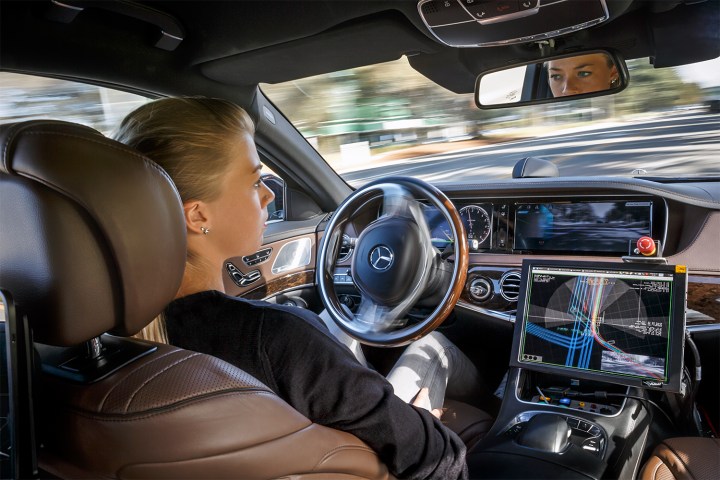
Given that several states in the U.S. have allowed the same kind of testing on regular roads for a number of years now, the most surprising thing about Germany only just green-lighting such trials is that it didn’t do it sooner.
Home to some of the biggest names in the automotive industry — BMW, Audi, Volkswagen, and Mercedes-Benz parent Daimler among them — the legislation passed by German lawmakers on Friday. May 12 lays down new rules for autonomous vehicles that will soon take to the nation’s streets, Reuters reported.
Germany already offers limited and strictly controlled public areas for testing automated vehicles, but the new rules offer much greater freedom.
Similar to the U.S., a self-driving car on German roads will have to have someone behind the wheel at all times, ready to take control of the vehicle should any of its on-board computers pull an unexpected move. In addition, a “black box” similar to those fitted to aircraft that record airplane data during a flight must be fitted to all autonomous vehicles driving on German roads. This will prove precisely how a car was being operated — for example, autonomously or by the engineer — in the case of an accident, helping to build a detailed picture of the build-up to any calamitous incidents, thereby making it easier to identify the cause.
Politicians will review the new law in 2019, when it will take into account advances in self-driving technology.
German automakers will be eager to make use of the new rules, with most of the nation’s major car companies already busy developing self-driving technology in the workshop. Audi, for example, is collaborating with tech firm Nvidia in a bid to bring fully automated driving to the roads by 2020, while BMW has partnered with Intel and Mobileye with a similar goal in mind. Daimler and Bosch have teamed up as well, and let’s not forget VW’s futuristic Sedric self-driving concept.
Hoping the new rules will help to propel German self-driving research to better compete with Silicon Valley-based experts as well as carmakers around the world, German transport minister Alexander Dobrindt described autonomous driving technology as the “greatest mobility revolution since the invention of the car.”


